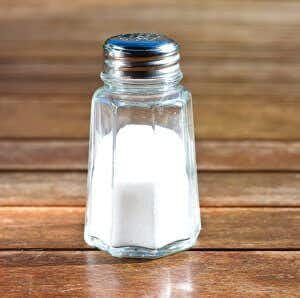
Many physicians take the position that you can’t have too low a golf score or sodium intake. They assume that most people use the salt shaker too liberally or eat too much prepared food high in sodium. Such assumptions are not always correct.
Q. I was feeling awful for several weeks and went to see my doctor. He had no idea why I felt so terrible.
Eventually, I couldn’t take it any more and went to the ER. There I was put through a lot of tests.
The doctor found I was low in sodium and said I should add salt to my diet. I was surprised and said my primary care doctor had told me to restrict my salt intake to help control my high blood pressure.
I followed the ER doctor’s advice and started putting salt in my food. Before long I felt better. Am I making my hypertension worse?
A. Most doctors suggest cutting salt to reduce blood pressure and the risk of stroke or heart attack. The American Heart Association (AHA) recommends that people should “reduce the amount of sodium in their diet to less than 1,500 mg a day.”
That target is challenging and would require eliminating prepared foods as well as the salt shaker. But it may be extreme.
An analysis of research in the American Journal of Hypertension (Sept. 2014) found both very low salt consumption and very high sodium intake associated with an increased mortality risk.
Hyponatremia
When sodium levels fall too low, the condition is called hyponatremia. Symptoms may include fatigue, lethargy, confusion, nausea, headache and memory problems as well as muscle cramps, weakness or spasms. Usually, doctors don’t think that low salt consumption leads to hyponatremia.
Diuretics, certain blood pressure medications, acid suppressing drugs, some antidepressants and seizure medications may increase the risk for this serious problem, so sodium levels should be measured periodically.
To find out whether adding salt to your food has a negative impact on your blood pressure, you will need to measure it occasionally. With a home blood pressure monitor, you could do so several times a week.

